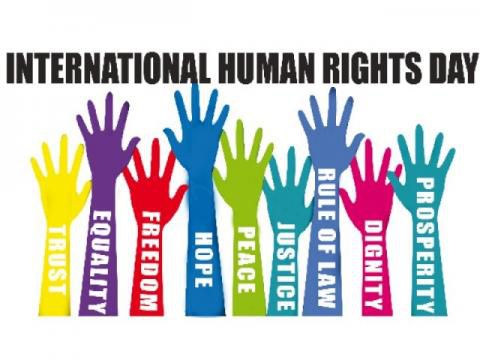 European Union Foreign Ministers have reportedly used the occasion of International Human Rights Day to approve an EU Magnitsky Act after Hungary dropped its objections. The EU has been considering legislation to impose financial sanctions (WSJ/CFR) on individuals involved in human rights abuses.
European Union Foreign Ministers have reportedly used the occasion of International Human Rights Day to approve an EU Magnitsky Act after Hungary dropped its objections. The EU has been considering legislation to impose financial sanctions (WSJ/CFR) on individuals involved in human rights abuses.
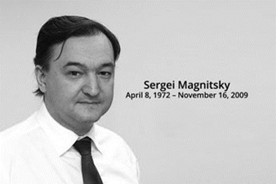
Credit ESI
“This is a gigantic development. If human rights violators cannot travel to Europe (and they’re already banned from the US and Canada) it will be devastating for them,” campaigner Bill Browder @Billbrowder tweeted.
As China hosts hundreds of lawyers from around the world, dozens of prominent Chinese rights lawyers remain detained, according to rights advocates who criticized the event as “a mockery,” The Guardian reports:
On Tuesday China held the second day of the global lawyers forum, coinciding with human rights day, bringing more than 800 legal professionals including those from the International Bar Association, the International Association of Lawyers, and the Bar Council of England and Wales.
 “Chinese judicial authorities hosting a global lawyers event while imprisoning and disbarring Chinese human rights lawyers makes a mockery of international cooperation on rule of law,” said Frances Eve, the deputy director of research at the NGO Chinese Human Rights Defenders, which has been calling on the international organisations attending the event to pressure Chinese officials to release detained Chinese rights advocates.
“Chinese judicial authorities hosting a global lawyers event while imprisoning and disbarring Chinese human rights lawyers makes a mockery of international cooperation on rule of law,” said Frances Eve, the deputy director of research at the NGO Chinese Human Rights Defenders, which has been calling on the international organisations attending the event to pressure Chinese officials to release detained Chinese rights advocates.
“It is being held over international human rights day, when bar associations should be standing up for the rights of lawyers, not helping the Chinese government try and whitewash its egregious human rights abuses.”
International Human Rights Day comes shortly after the release of a CIVICUS report which finds that only 3% of the world’s population live in states where fundamental rights are protected and respected.
This is cause for the day to serve as a wake-up and a warning, notes one observer.
In 2018, when marking the 70th anniversary of the Universal Declaration of Human Rights (UDHR) Kumi Naidoo, the outgoing Secretary-General of Amnesty International, lamented that “if the leaders of the world were called upon to sign the UDHR today, they would be unable and unwilling to put human rights at the centre of global governance. Such a declaration would be impossible today”.
Cuban dissident Guillermo Farinas, on a visit to Vilnius, has called on Lithuania to block the European Union’s cooperation agreement with Havana until the communist regime changes its attitude toward human rights. The 57-year-old journalist and psychologist has staged a number of hunger strikes to protest against human rights restrictions in Cuba and has been repeatedly detained by the authorities.
“The regime has been very aggressive recently. Also, there has been some increase in the pressure against normal people who are not members of opposition groups and pro-democracy and human rights groups,” said Farinas, a recipient of the European Parliament’s Sakharov Prize for Freedom of Thought.
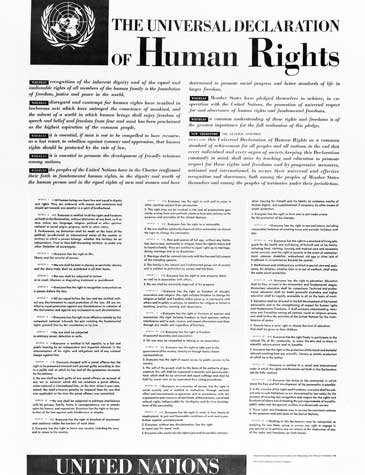 Sadly, not all nations have demonstrated willingness to comply with the Universal Declaration of Human Rights, said a statement from the U.S. State Department.
Sadly, not all nations have demonstrated willingness to comply with the Universal Declaration of Human Rights, said a statement from the U.S. State Department.
“The Chinese government continues to repress members of religious and ethnic minority groups in Xinjiang, Tibet, and elsewhere, as well as to undermine the freedoms guaranteed to Hong Kongers under the Sino-British Joint Declaration and the Basic Law,” it added. ‘The regimes in Iran, Syria, and Venezuela commit gross human rights violations every day that shock the conscience.”
But the UN’s own Human Rights Council is tainted, not only by its Israel derangement syndrome, but also by shielding the world’s worst human abusers, notes one observer.
“In addition to Venezuela, Libya, Sudan, and Mauritania, which still engage in widespread slave practice, were also elected,” writes Vladimir Sloutsker. “In the meantime, current members of the UNHRC, such as Cuba, Saudi Arabia, Pakistan, and Qatar, are not exactly great exemplars of freedom and democracy that inspire confidence in their ability to objectively stand up for human rights.
The UNHRC is “where the worst criminals are often the prosecutors and judges,” as Hillel Neuer of UN Watch, the leading independent organization devoted to monitoring the United Nations has observed.
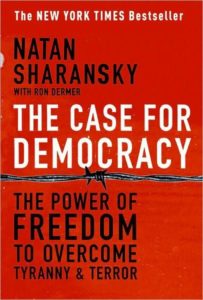 Former Soviet dissident Natan Sharansky has been awarded Israel’s prestigious 2020 Genesis Prize for a lifetime of work promoting political and religious freedoms, organizers announced Tuesday. The $1 million award is granted each year to a person recognized for outstanding professional achievement, contribution to humanity and commitment to Jewish values, The Washington Post reports:
Former Soviet dissident Natan Sharansky has been awarded Israel’s prestigious 2020 Genesis Prize for a lifetime of work promoting political and religious freedoms, organizers announced Tuesday. The $1 million award is granted each year to a person recognized for outstanding professional achievement, contribution to humanity and commitment to Jewish values, The Washington Post reports:
Sharansky first gained global renown in the 1970s as a leader of the Soviet dissident movement, where he worked alongside Nobel Prize Laureate Andrei Sakharov, demanding that the USSR live up to its international human rights obligations. Arrested for his challenge to the Soviet regime, he spent nine years incarcerated as a Prisoner of Conscience – much of it in solitary confinement –refusing to disavow his demands for respect of human rights for all oppressed people of the Soviet Union.
The author of The Case For Democracy: The Power Of Freedom to Overcome Tyranny And Terror, Sharansky “is a hero, whose courage united people all over the globe in a quest for freedom,” said Tony Blair, former UK Prime Minister. “He is a distinguished leader who made a significant contribution to the State of Israel, to the people who lived in oppressed societies of the Soviet bloc nations, and to humanity as a whole.”
But rights violations and official impunity continue to plague post-Soviet Russia.
 “The Russian human rights organization Memorial now lists 315 political prisoners in Russia, up from 195 last year, and reports that 200 of them are imprisoned for exercising their freedom of religion or belief,” said Robert Destro, U.S. Department of State Assistant Secretary for Democracy, Human Rights, and Labor.
“The Russian human rights organization Memorial now lists 315 political prisoners in Russia, up from 195 last year, and reports that 200 of them are imprisoned for exercising their freedom of religion or belief,” said Robert Destro, U.S. Department of State Assistant Secretary for Democracy, Human Rights, and Labor.
“The government increasingly restricts freedom of expression and Internet freedom, and civil society and the independent press face constant harassment, character smears, threats and violence,” he added. “In the Republic of Chechnya, torture, enforced disappearances, and mass extrajudicial killings reportedly take place with total impunity.”
 On the occasion of Human Rights Day, the Arab Reform Initiative released a book, The Rugged Road: The Emergence, Evolution and Challenges of Human Rights Action in Arab Countries, assessing the evolution and challenges of the human rights movements in Egypt, Morocco and Tunisia.
On the occasion of Human Rights Day, the Arab Reform Initiative released a book, The Rugged Road: The Emergence, Evolution and Challenges of Human Rights Action in Arab Countries, assessing the evolution and challenges of the human rights movements in Egypt, Morocco and Tunisia.
“Human rights activism in the region is a complex, multi-faceted effort that defies the simplistic narrative of “rise and fall” that we have often heard since 2011,” said Nadim Houry, executive director of the Arab Reform Initiative. “As protesters demanding rights occupy the streets from Algeria to Iraq to Lebanon, it is essential to take stock of the history and challenges of the human rights movement in MENA in order to assess its prospects and contributions to a region undergoing major changes.”
The book covers six main themes:
- the emergence and evolution of human rights organizations in Egypt, Morocco and Tunisia with a largely unprecedented history of the first organizations that were formed in the 1970s;
- the complicated relations between human rights activists and the state;
- the relationship of Islamists and Islamist movements to human rights discourse and activists;
- the human rights movement’s interaction with other social movements (trade unions, other NGOs, or political parties);
- the internal governance of human rights organizations; and
- the impact of human rights action.
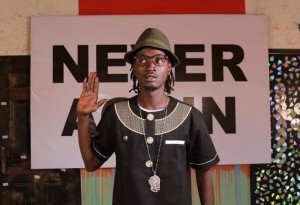 Ali Cham, aka Killa Ace (left), is a rapper from The Gambia and founder of Team Gom sa bopa (Believe in yourself), a social-media driven movement dedicated to raising social and political awareness among young people, the World Movement for Democracy @movdemocracy adds. Ace is a participant of the African Movement for Democracy (AMD), which is dedicated to “opening new spaces for a new generation of democratic political leaders” in Africa. Through his participation with AMD, Ace became a founding member of Music as a Messenger of Democracy, a pan-African collaboration of musicians who work to bring public attention to human rights issues through their music. You can listen to their songs here.
Ali Cham, aka Killa Ace (left), is a rapper from The Gambia and founder of Team Gom sa bopa (Believe in yourself), a social-media driven movement dedicated to raising social and political awareness among young people, the World Movement for Democracy @movdemocracy adds. Ace is a participant of the African Movement for Democracy (AMD), which is dedicated to “opening new spaces for a new generation of democratic political leaders” in Africa. Through his participation with AMD, Ace became a founding member of Music as a Messenger of Democracy, a pan-African collaboration of musicians who work to bring public attention to human rights issues through their music. You can listen to their songs here.
- Myanmar’s atrocities detailed in dramatic Hague hearing; journalists remember the Balkans genocide, even if a Nobel literature laureate denies it;
- EU highlights Hungarian government’s assault on rule of law;
- those at most risk in Cameroon’s crisis;
- Lebanon’s health system at breaking point;
- National Assembly failing victims in Kenya;
- Delhi’s factory disaster;
- Uzbekistan reforms haven’t stopped systematic torture;
- bogus charges against opposition leader in Cambodia;
- breaking news on Turkey’s crackdown…RTWT
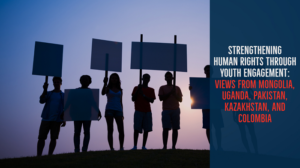 The National Endowment for Democracy is working to improve #humanrights conditions and dedicated to the growth of democratic institutions abroad, including political parties, #tradeunions, #freemarkets & business orgs + elements of a vibrant #civilsociety ensuring #humanrights, ind media, & rule of law. http://ow.ly/USgQ30q0mfH #HumanRightsDay #NEDemocracy
The National Endowment for Democracy is working to improve #humanrights conditions and dedicated to the growth of democratic institutions abroad, including political parties, #tradeunions, #freemarkets & business orgs + elements of a vibrant #civilsociety ensuring #humanrights, ind media, & rule of law. http://ow.ly/USgQ30q0mfH #HumanRightsDay #NEDemocracy
In commemoration of Intl #HumanRightsDay, NED Reagan-Fascell Fellows @Dolgiona @marvisirmed @PVacaV Catherine Kanabhita & Viktoriya Tyuleneva will discuss the role of youth in advocating for #humanrights. Live stream here. @thinkdemocracy
This past year, the National Endowment for Democracy was proud to honor defenders of #humanrights and religious rights in China with the 2019 Democracy Award. #NEDemocracy #DemAward #HumanRightsDay
In many countries around the world, countless men and women are unjustly imprisoned for defending and promoting fundamental freedoms and equality for all. #HumanRightsDay Learn more here. @movdemocracy
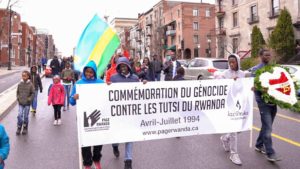
https://museeholocauste.ca
The Raoul Wallenberg Centre for Human Rights (RWCHR), Page Rwanda and the Canadian Museum for Human Rights (CMHR) hosted an important gathering of remembrance and reminder, exploring how members of the Rwandan-Canadian community took action within the Canadian legal system to secure justice and hold accountable the perpetrators of the 1994 Rwandan genocide.
The event featured a lecture from RWCHR Chair, Professor Irwin Cotler, on Canada’s international commitments to prosecute mass atrocity crimes domestically. Other speakers included Jean-Paul Nylinkwaya (Page-Rwanda), Dr. Jeremy Maron (CMHR), Daniel Amar (MHM) and Professor Fannie Lafontaine. A short documentary — The Power of Community: Seeking Justice after the Genocide against the Tutsi in Rwanda — produced by the CMHR was shown, followed by an engaging moderated panel discussion.







